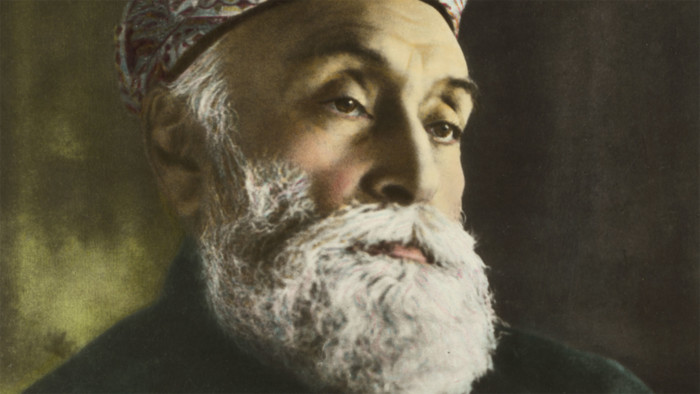Why Tata’s founder was ahead of his time

Roula Khalaf, Editor of the FT, selects her favourite stories in this weekly newsletter.
The story I am about to tell is a familiar one. It is one of an entrepreneur who starts in a modest family business and then breaks out on his own. He suffers initial adversity, driven by a war half a world away. Perhaps motivated by that, he builds a new business, where he incorporates new technology. He brings in new business practices. He becomes very wealthy over time. Finally, he makes a substantial philanthropic commitment to cap off an outstanding career.
Before you roll your eyes and think “not one of those again”, let me tell you my story has a twist: it ends in 1904, the war is the American civil war and the entrepreneur began as a cotton trader in India. The story is that of Jamsetji N Tata, founder of the Tata conglomerate.
What he achieved as an entrepreneur is spectacular. Having suffered a reverse as a cotton trader because of the end of the American civil war and the consequent drop in cotton prices, he recovered enough in a decade to build an exemplary cotton mill away from Bombay (now Mumbai), then the centre of the textile industry in India. He saw, as most good entrepreneurs do, a white space. This mill was a huge success.
He introduced a technology unknown in India, the so-called ring spindle. His attempt to be at the technological edge was pooh-poohed by competitors who later followed suit.
Once he had acquired significant personal wealth, Tata began three very ambitious projects. None of them would be completed before he died aged 65.
The first was to set up a steel plant in Bihar. Given the relative backwardness of industry in India at that time, many saw this as ridiculous. One British official said he would eat the steel rail Tata could produce to British specifications. I don’t think the official was held to his word.
Second, he decided to build a hydroelectric power plant near Bombay. Again he was way ahead of his competitors and the market, starting less than two decades after the earliest hydroelectric project on the Niagara in North America.
The third project was philanthropic. He decided to set up a research institute not only to train people but to become the established authority on scientific matters in the region. This was again a stunning aspiration for India at that time. The University of Chicago was only in its first decade when he got started.
What Tata achieved is impressive. Equally impressive, though less known, is how he achieved it. Several salient features serve as lessons to entrepreneurs even today. First, he set the highest ethical standards for his companies. The Zoroastrian saying, “Good thoughts, good words, good deeds”, was put into practice by his companies.
Second, he was a pioneer in India of using professional management. Even in his early endeavours, he installed a professional cadre of managers to whom he could delegate operations and move on to other more exciting projects.
Third, he was a firm proponent of thought and analysis before action. Tata once had to fight a tariff that had been imposed by the British government on cotton textiles imported from India. He commissioned a study that established that the industry’s long-term profitability was lower than the government estimate and thus supported lowering the tariff. The use of such a study to rebut the government appears to be without precedent in India.

Tata’s three most ambitious projects were all conceived after careful study. He thought through what would be successful both in terms of profitability (in the case of the first two projects) and social impact (in the case of all three).
I admire Tata primarily for his three last projects. He conceived them late in life. He must have known they could take decades to complete. A truly visionary entrepreneur builds for succeeding generations, not just the initial public offering. In the case of the power and steel projects, it is hard to disentangle whether he conceived of them out of a sense of duty to his country or out of sound, long-term business sense. Often, opportunities for business coincide with the needs of a country, but it takes vision to find them.
Tata aspired to the hard-to-achieve. He did not choose the easiest paths to greater wealth. Finally, he believed in people. His use of professional management and his investment in scientific education and research in India are testament to this.
I must disclose I am a beneficiary of Tata’s generosity and vision: I am a graduate of the Indian Institute of Science. Even today, when people in Bangalore ask me where I studied, I give them the colloquial name of my alma mater: the Tata Institute.
Professor Sunil Kumar is dean of the University of Chicago’s Booth School of Business
Comments